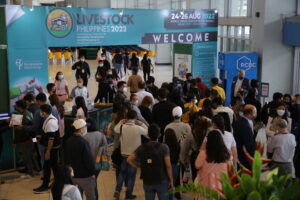BSP says lack of internet connectivity is a hurdle to PalengQR PH rollout

THE BANGKO SENTRAL ng Pilipinas (BSP) is looking to work with the Department of Information and Communications Technology (DICT) to address the lack of internet connectivity in some areas in the country amid the continued rollout of the PalengQR PH program.
BSP Deputy Governor Bernadette Romulo-Puyat said the lack of internet connection is one of the main challenges local governments face in launching the PalengQR PH initiative.
“We don’t have enough internet connection. That’s the problem. So, we are asking help more from DICT instead of the DILG (Department of the Interior and Local Government),” she said in mixed English and Filipino.
The PalengQR PH program pushes for digital payments among market vendors, community shopkeepers, and local transportation in cities and municipalities in the country.
The program was jointly developed by the BSP and the DILG and capitalizes on the QR Ph initiative. QR Ph is the country’s quick response code standard, which gives customers of banks and nonbank electronic money issuers a quick and secure way to pay, as well as transfer and receive funds.
According to Ms. Romulo-Puyat, other local government units (LGUs) are interested in launching the central bank program in their respective cities and municipalities, but most lack internet connectivity or have slow internet speeds because of poor signal.
This was the case of Victorias City Mayor Javier Miguel L. Benitez, who was interested in launching the program after it was rolled out in Bacolod City, Negros Occidental, but recognized the area’s poor internet connection, she said.
Meanwhile, Ms. Romulo-Puyat lauded Baguio City’s free Wi-Fi link implemented earlier in March. It was rolled out at the Baguio City Public Market to encourage vendors and consumers to use digital payments.
Based on a survey conducted by the LGU, only a thousand of the market’s 3,900 vendors have signed up for PalengQR due to lack of access to internet, Baguio City Mayor Benjamin B. Magalong earlier said.
“We want to make it work. For example, Baguio City implemented a free Wi-Fi connection. We’ll see with this project if we can onboard more people (into the program),” Ms. Romulo-Puyat said.
The central bank is also looking to monitor the areas where PalengQR PH was initially rolled out before expanding the program to more cities across the country, Ms. Romulo-Puyat said.
“We have eight that we’ve launched and 14 have already passed ordinances. But what we want is to make what we have work. It’s hard if we only launch programs but not all of them are working effectively,” she said.
The PalengQR PH initiative was launched in parts of Mindanao, the Visayas, and Central Luzon, starting in Baguio City last year.
The BSP gave banks and financial institutions until June 30 to fully adopt the national QR code standard in a bid to accelerate digitalization.
The central bank has been encouraging the use of QR technology as a convenient and safe payment solution, as it aims to turn half of the volume and value of payments into digital form this year. — Keisha B. Ta-asan




